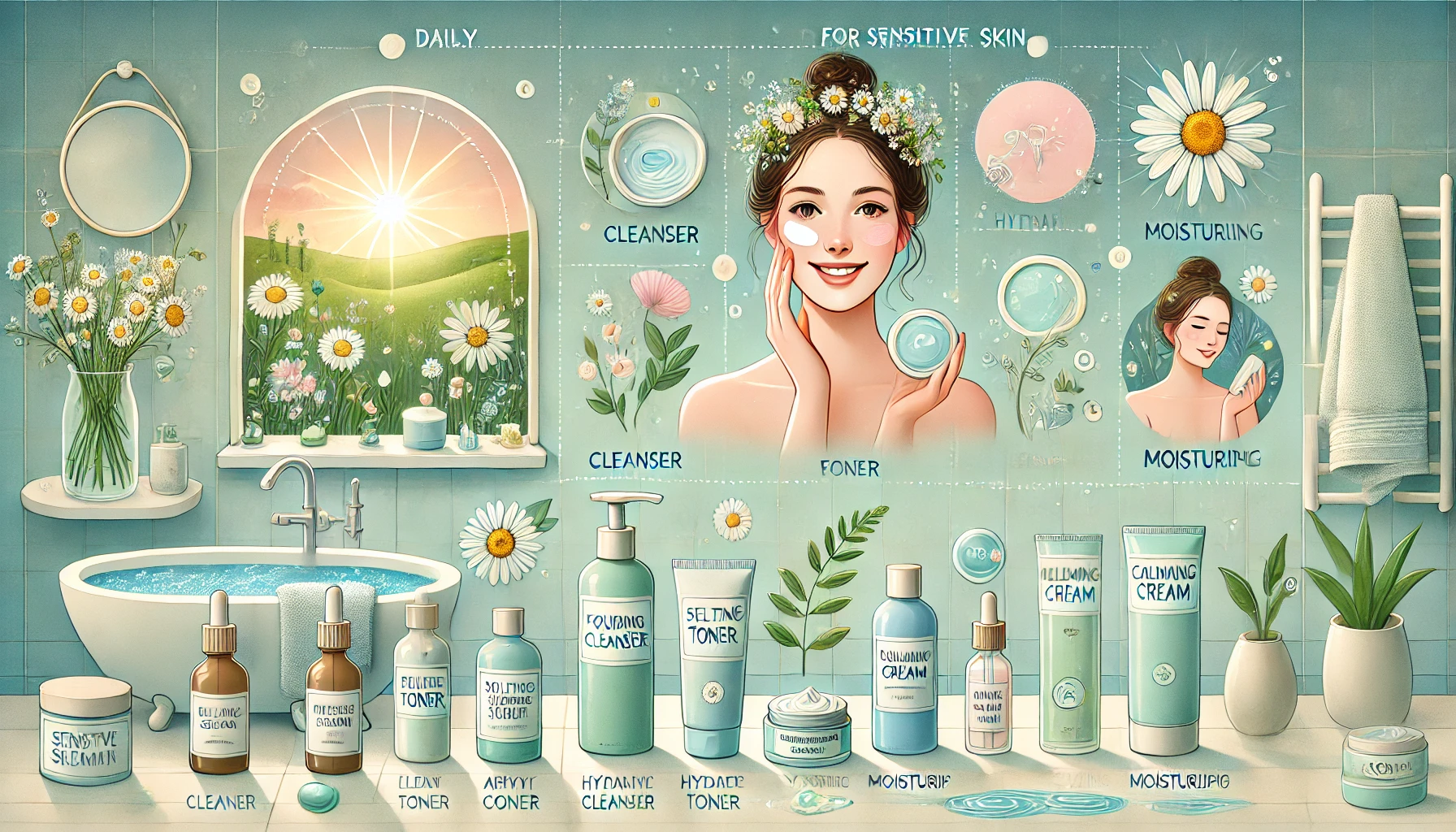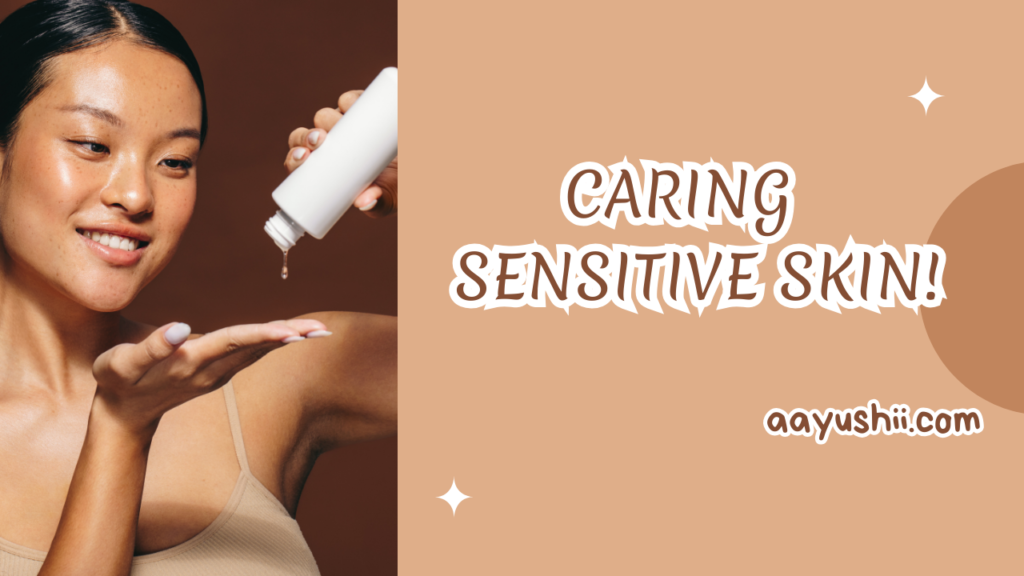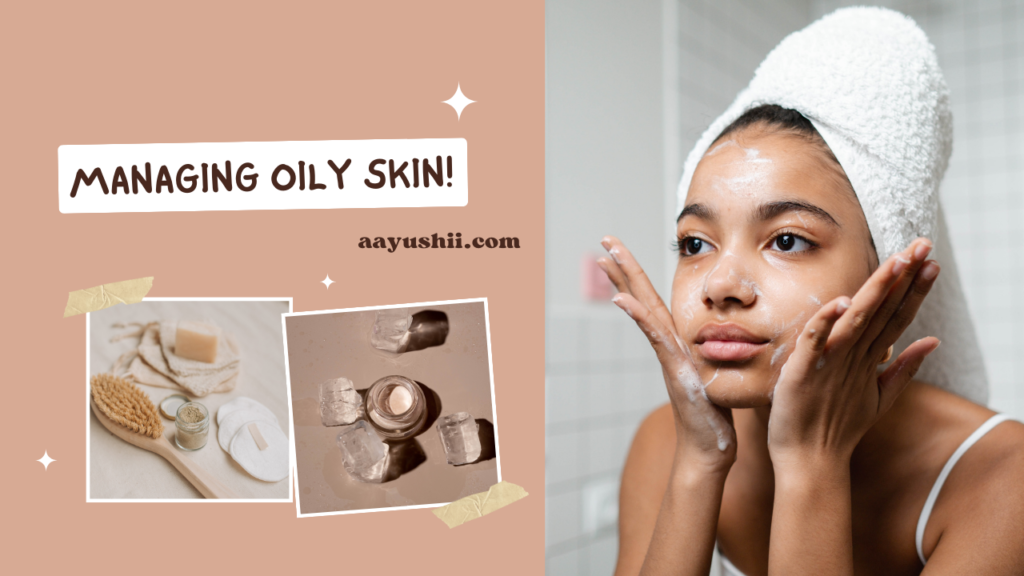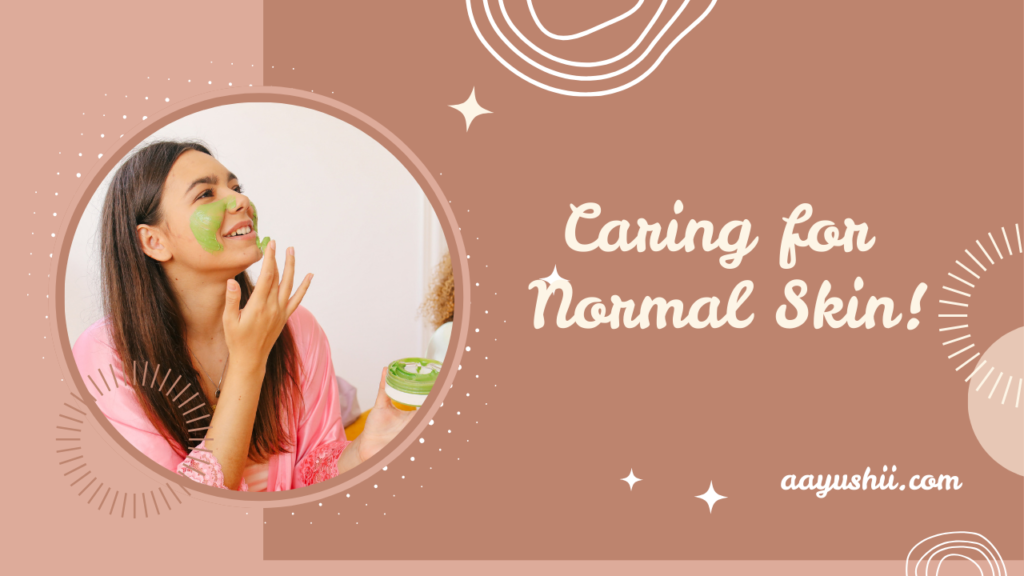Sensitive skin is a delicate condition often marked by redness, irritation, and discomfort. It requires extra care and attention to minimize reactions and strengthen the skin’s barrier. Whether triggered by environmental aggressors, underlying skin conditions, or unsuitable skincare products, managing sensitive skin involves understanding its specific needs and using gentle, effective ingredients. This article will explore the causes of sensitive skin, highlight science-backed ingredients tailored for its care, and recommend products that provide soothing and protective benefits.
What Makes Sensitive Skin Unique?
Sensitive skin is characterized by an exaggerated response to external and internal stimuli, leading to symptoms such as redness, itching, stinging, and dryness. Unlike other skin types, sensitive skin has a compromised barrier function, making it more vulnerable to environmental aggressors and product ingredients.
Key Traits of Sensitive Skin:
- Heightened Reactivity: The skin may react strongly to fragrances, preservatives, or even natural extracts.
- Weakened Barrier: A less effective barrier makes sensitive skin prone to moisture loss and irritant penetration.
- Underlying Conditions: Rosacea, eczema, or psoriasis often coexist with sensitive skin, amplifying its challenges.
Causes of Sensitive Skin

Understanding the root causes of sensitive skin is crucial to managing it effectively. Below are the most common triggers:
1. Genetic Predisposition
Just like other skin types, genetics play a significant role in how sensitive your skin is. If you have a family history of skin conditions such as eczema, rosacea, or psoriasis, you’re more likely to have sensitive skin. This is because your skin may have a thinner barrier or be more prone to inflammation, making it more reactive to environmental and product-based irritants.
2. Compromised Skin Barrier
The skin’s outermost layer, known as the stratum corneum, acts as a protective barrier against irritants and allergens. When this barrier becomes damaged—whether through over-exfoliation, harsh chemicals, or environmental stressors—it loses its ability to lock in moisture and shield the skin. This allows external irritants and allergens to penetrate, leading to inflammation and redness. Conditions like eczema or dermatitis often stem from this barrier breakdown.
3. Environmental Factors
Exposure to extreme weather conditions like excessive sun, cold winds, or dry air can cause your skin to become irritated and dehydrated. Seasonal changes often trigger sensitivity, especially in the winter when cold temperatures and dry indoor heating can strip the skin of its natural moisture. Similarly, high humidity and heat during summer can also lead to discomfort, resulting in flushed or inflamed skin.
4. Pollution and Urban Stressors
Urban pollution, including particulate matter, car exhaust, and free radicals in the air, can damage the skin’s barrier and trigger inflammation. Pollutants penetrate the skin and create oxidative stress, leading to premature aging, redness, and irritation. Individuals with sensitive skin are particularly susceptible to the effects of pollution because their skin barrier is more fragile and reactive.
5. Skin Conditions
Certain skin conditions can make the skin more sensitive. For example:
- Rosacea: A chronic inflammatory condition that causes redness, visible blood vessels, and sometimes pimples, is a major cause of sensitivity. The skin becomes highly reactive to triggers like spicy food, alcohol, hot beverages, and environmental changes.
- Eczema: Also known as atopic dermatitis, eczema is characterized by itchy, inflamed patches of skin that are often dry and cracked. People with eczema have an impaired skin barrier that makes their skin more sensitive to irritants.
- Psoriasis: This autoimmune condition leads to the rapid turnover of skin cells, forming thick, scaly patches. Psoriasis can make the skin more sensitive and prone to inflammation.
6. Overuse of Skincare Actives
Frequent use of potent skincare ingredients such as retinol, glycolic acid, or salicylic acid can sometimes overwhelm the skin, especially if it’s already sensitive. While these ingredients can be effective for acne, aging, and skin texture, they can also cause dryness, peeling, and irritation if used too often or in high concentrations. For sensitive skin, it’s important to introduce actives slowly and in lower concentrations.
7. Hormonal Imbalances
Hormonal fluctuations, especially those related to menstruation, pregnancy, and menopause, can affect the skin’s sensitivity. These hormonal changes can make the skin more reactive to external triggers, causing flare-ups or sudden dryness. Stress-induced hormones, such as cortisol, can also contribute to skin irritation, acne, and redness.
8. Diet and Nutrition
A poor diet can exacerbate skin sensitivity. Nutrient deficiencies, particularly in essential fatty acids (like omega-3s) and antioxidants (like vitamins A, C, and E), can weaken the skin’s natural defenses. Inflammatory foods like processed sugars, dairy, or alcohol may also trigger inflammation and sensitivity in some individuals. On the other hand, a balanced diet rich in healthy fats, antioxidants, and hydration can help support skin health.
9. Over-Cleansing or Harsh Products
Cleansing too frequently or using harsh cleansers can strip the skin of its natural oils and weaken the barrier. Many conventional soaps, for example, contain high pH levels that disrupt the skin’s acid mantle, leading to dryness, irritation, and sensitivity. It’s essential to use mild, non-foaming cleansers that maintain the skin’s natural pH level.
10. pH Imbalance
The pH of your skin plays a crucial role in maintaining its health. Healthy skin typically has a slightly acidic pH, around 4.5 to 5.5. This acidic environment helps support the skin’s natural barrier and protects it from harmful bacteria and pollutants. However, using products that are too alkaline or too acidic can disturb the skin’s pH balance. When this happens, the skin becomes more vulnerable to irritation, dryness, and sensitivity. Common triggers for pH imbalance include soap-based cleansers, harsh exfoliants, and over-washing.
How pH Affects Sensitivity: When the skin’s pH is out of balance, the skin barrier becomes less effective, leading to dehydration, irritation, and a higher susceptibility to environmental triggers.
11. Over-Exfoliation
Exfoliation is an important step in removing dead skin cells and promoting skin renewal, but over-exfoliating can lead to significant damage, especially for sensitive skin. Over-exfoliation occurs when the skin is subjected to excessive physical or chemical exfoliation, stripping away the protective barrier and causing redness, peeling, or irritation. This can make the skin even more sensitive and susceptible to further damage.
How Over-Exfoliation Affects Sensitive Skin: Over-exfoliating disrupts the skin’s natural moisture retention, leads to increased irritation, and compromises the skin’s ability to protect itself from external threats.
Preventing Over-Exfoliation: Stick to gentle exfoliants like lactic acid or enzyme-based exfoliators, and limit exfoliation to 1-2 times a week. For sensitive skin, it’s important to avoid scrubs with large, abrasive particles.
12. Lifestyle Factors and Stress
Chronic stress can increase the production of cortisol, which can impair the skin’s barrier function and lead to flare-ups of sensitive skin conditions like rosacea or eczema. Additionally, lack of sleep or an unbalanced lifestyle can reduce the skin’s ability to repair and regenerate, leading to more sensitive and reactive skin.
13. Allergies
Both environmental and skincare product allergies can lead to sensitive skin. Pollen, dust mites, mold, and pet dander are common allergens that can trigger symptoms like itching, redness, and irritation. Additionally, certain fragrances, preservatives, and harsh chemicals in skincare products can cause allergic reactions in sensitive individuals.
14. Age-Related Sensitivity
As the skin ages, its ability to retain moisture and protect itself from irritants diminishes. Collagen production decreases, and the skin becomes thinner, making it more prone to irritation. Older skin may react more sensitively to products and environmental factors, requiring a gentler approach to skincare.
Science-Backed Ingredients for Sensitive Skin

Managing sensitive skin starts with incorporating gentle yet effective ingredients into your routine. Below are key ingredients supported by research, along with product recommendations.
1. Niacinamide (Vitamin B3)
Niacinamide is a multitasking ingredient that strengthens the skin barrier, reduces redness, and calms inflammation. It’s particularly effective for managing irritation caused by sensitivity.
How It Works:
Boosts ceramide production, soothes irritation, and improves resilience to external triggers.
Recommended Products:
- Lightweight serums with 5% niacinamide concentration.
- Hydrating moisturizers combining niacinamide with glycerin.
2. Centella Asiatica (Cica)
Centella Asiatica, also known as “Cica,” is celebrated for its healing and anti-inflammatory properties. It helps repair skin damage and reduces redness.
How It Works:
Enhances collagen synthesis, accelerates wound healing, and soothes irritated skin.
Recommended Products:
- Calming creams or gels with high Centella extract concentrations.
- Sheet masks infused with Cica for instant relief.
3. Colloidal Oatmeal
This natural ingredient is rich in beta-glucans, which provide anti-inflammatory and soothing effects.
How It Works:
Forms a protective barrier on the skin while reducing itching and irritation.
Recommended Products:
- Moisturizers designed for eczema-prone skin.
- Cleansers with colloidal oatmeal for a gentle cleanse.
4. Ceramides
Ceramides are essential lipids that repair the skin barrier and prevent moisture loss, making them ideal for sensitive skin.
How It Works:
Replenishes the skin’s lipid barrier, improving hydration and reducing vulnerability to irritants.
Recommended Products:
- Barrier repair creams enriched with ceramide complexes.
- Soothing balms containing ceramides and cholesterol.
5. Aloe Vera
Aloe vera is widely recognized for its cooling and hydrating properties, making it a staple for sensitive skin.
How It Works:
Hydrates and calms inflamed skin while promoting healing.
Recommended Products:
- Aloe vera gels free from fragrances and alcohol.
- Soothing masks containing pure aloe vera extract.
6. Azelaic Acid
Azelaic acid is an excellent choice for sensitive skin prone to rosacea or acne. It reduces redness and inflammation without being overly harsh.
How It Works:
Reduces inflammation, unclogs pores, and evens out skin tone.
Recommended Products:
- Serums or creams with 10% azelaic acid.
- Dual-action products combining azelaic acid with niacinamide.
7. Squalane
Squalane is a lightweight emollient that mimics the skin’s natural oils, locking in moisture without clogging pores.
How It Works:
Strengthens the skin barrier and protects against environmental stressors.
Recommended Products:
- Squalane-based facial oils.
- Hydrating cleansers with squalane.
8. Chamomile Extract
Chamomile has soothing and anti-inflammatory properties, making it a great choice for calming sensitive skin.
How It Works:
Reduces redness, soothes irritation, and promotes skin healing.
Recommended Products:
- Gentle toners or facial mists with chamomile extract.
- Rich creams combining chamomile with ceramides.
A Science-Backed Routine for Sensitive Skin

Consistency and a gentle approach are vital. Here’s a recommended routine:
- Cleanse Gently
- Use a low-pH, sulfate-free cleanser with soothing ingredients like oatmeal or aloe vera.
- Tone with Care
- Opt for alcohol-free toners with chamomile or Centella Asiatica.
- Apply Targeted Serums
- Niacinamide or azelaic acid can reduce redness and improve barrier function.
- Moisturize Deeply
- Use a barrier-repairing cream with ceramides or squalane.
- Sun Protection
- Apply a mineral-based sunscreen with zinc oxide and soothing agents like aloe vera.
Lifestyle Tips for Sensitive Skin
- Avoid Triggers: Identify and eliminate products or foods that aggravate your skin.
- Stay Cool: Protect skin from extreme heat or cold by dressing appropriately and using protective products.
- Manage Stress: Practice mindfulness or yoga to reduce stress-induced flare-ups.
- Patch Test: Always test new products before applying them to your face.
Mistakes to Avoid
- Skipping Sunscreen: Sensitive skin is particularly vulnerable to UV damage. Use a hypoallergenic SPF daily.
- Using Too Many Products: Keep your routine minimal to reduce the risk of irritation.
- Ignoring Red Flags: Persistent redness or irritation may signal a deeper issue—consult a dermatologist when needed.
Conclusion
Sensitive skin demands a thoughtful and personalized skincare routine that focuses on protecting the skin barrier, reducing inflammation, and using soothing, hydrating ingredients without irritation. By understanding the underlying causes of sensitivity, including genetic factors and environmental influences, you can tailor your approach to meet your skin’s unique needs. Incorporating science-backed ingredients like niacinamide, ceramides, and aloe vera helps maintain a calm, balanced complexion. In conclusion, while sensitive skin requires careful, customized care to avoid triggers and maintain comfort, it stands apart from other skin types such as oily, dry, combination, and normal skin, each of which has its own distinct skincare needs for achieving optimal balance and health.
FAQ: Caring Sensitive Skin
- What is sensitive skin and how can I tell if I have it?
Sensitive skin is characterized by heightened reactions to external factors, such as skincare products, weather changes, or certain ingredients. If your skin frequently experiences redness, burning, itching, or stinging sensations, especially after using products or being in harsh environments, you may have sensitive skin. - What are the most common causes of sensitive skin?
Sensitive skin can be triggered by several factors, including genetics, environmental conditions (like extreme weather or pollution), harsh skincare products, over-exfoliation, and underlying skin conditions such as eczema or rosacea. Hormonal fluctuations and stress can also play a role. - How can I protect my sensitive skin from irritation?
Protect your sensitive skin by opting for gentle, fragrance-free products that help strengthen the skin’s barrier. Avoid over-exfoliating and steer clear of harsh ingredients like alcohol, sulfates, or synthetic fragrances. Regularly hydrate your skin and use sunscreen to shield it from UV damage. - Which ingredients are best suited for sensitive skin?
Ingredients like niacinamide, ceramides, hyaluronic acid, aloe vera, and chamomile are great for sensitive skin. These help to soothe irritation, repair the skin barrier, and provide hydration without causing additional sensitivity. - Can I use active ingredients like retinol or glycolic acid with sensitive skin?
While retinol and glycolic acid can offer great skincare benefits, they can be too harsh for sensitive skin. If you want to incorporate these, start with lower concentrations and gradually build up. Alternatively, consider gentler options like niacinamide or lactic acid that provide similar benefits with less irritation. - How do I build a skincare routine for sensitive skin?
A simple and effective skincare routine for sensitive skin should include a gentle cleanser, a soothing toner, a hydrating serum, and a moisturizer with barrier-repairing ingredients. Don’t forget sunscreen during the day to protect your skin from UV damage. Keep your routine minimal to avoid overwhelming your skin. - Is it safe to exfoliate sensitive skin?
Yes, but with caution. Over-exfoliation can damage the skin barrier, leading to increased sensitivity. Stick to gentle exfoliants like lactic acid and limit exfoliation to once a week to keep your skin smooth without causing irritation. - What role does diet play in managing sensitive skin?
A healthy diet can help support your skin’s overall health. Foods rich in omega-3 fatty acids, antioxidants, and vitamins A, C, and E can help reduce inflammation and promote a healthy skin barrier. Drink plenty of water and avoid processed foods that may trigger skin inflammation. - Can sensitive skin improve over time?
With the right care, sensitive skin can improve significantly. By using soothing, barrier-repairing ingredients, avoiding triggers, and practicing gentle skincare, your skin can become more resilient and less prone to irritation. - What lifestyle habits can help calm sensitive skin?
Incorporating a balanced lifestyle with stress management, adequate sleep, and hydration can help improve skin health. Avoiding smoking, excessive alcohol, and over-exposure to environmental pollutants can also help calm and protect sensitive skin.





